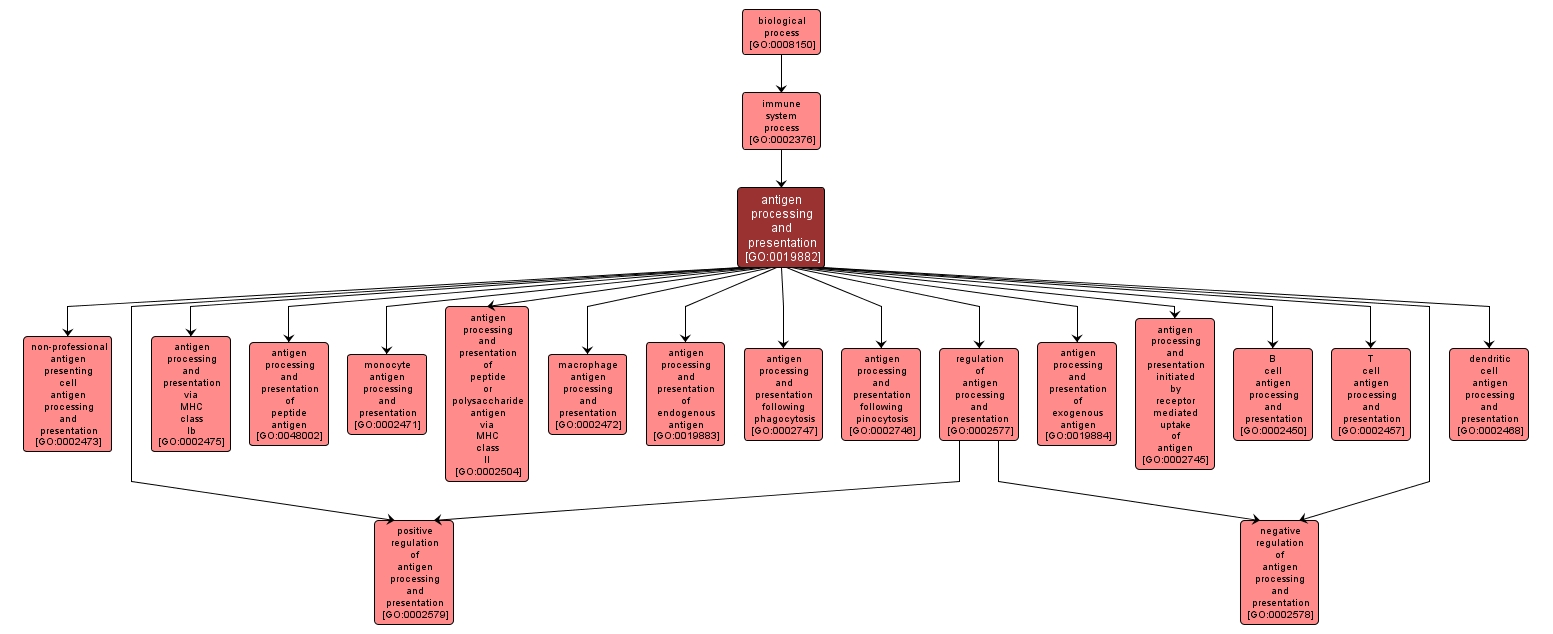GO TERM SUMMARY
|
| Name: |
antigen processing and presentation |
| Acc: |
GO:0019882 |
| Aspect: |
Biological Process |
| Desc: |
The process by which an antigen-presenting cell expresses antigen (peptide or lipid) on its cell surface in association with an MHC protein complex. |
Synonyms:
- antigen presentation
- antigen processing
- GO:0030333
|
|

|
INTERACTIVE GO GRAPH
|














